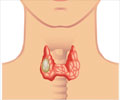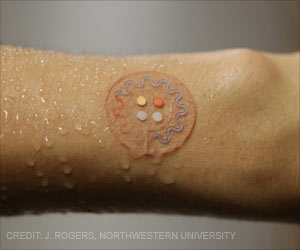Thyroid cancer which cannot be treated by standard radioactive iodine therapy can be treated with cabozantinib drug, finds a new study.
Highlights
- Cabozantinib drug could be a new firstline therapy for metastatic, radioactive iodine-resistant thyroid cancer.
- Radioactive iodine therapy is the standardized treatment for thyroid cancer but nearly 15 percent of these patients have cancers that are resistant to the therapy.
- After taking the drug, tumor size decreased by more than 30 percent in 34 patients out of 35.
The treatment can be curative, but about 15 percent of these patients have cancers that are resistant to the therapy. There are currently two approved treatments in these cases, both of which are kinase inhibitors - drugs that block enzymes that are crucial to a cancer cell’s ability to function. However, responses to these treatments are not durable. Once patients progress, they need additional therapeutic options.
"Our trial shows that cabozantinib is an active agent for patients with RAI-refractory thyroid cancer and may be able to significantly improve the care of patients who are at this advanced stage of their disease," said the study’s lead author Marcia S. Brose, MD PhD, an associate professor of Otorhinolaryngology: Head and Neck Surgery and director of the Center for Rare Cancers and Personalized Therapy at Penn.
As part of a phase II trial, Brose and her team gave the drug as a first line therapy to 35 patients with metastatic, radioactive iodine-resistant thyroid cancer starting in March of 2014. Thirty-four experienced tumor shrinkage and 19 of the 35 (54 percent) achieved a partial response - defined as a shrinkage greater than 30 percent.
The median time on the study was 35 weeks (range 3-197), and 16 patients are currently still enrolled. "These results indicate cabozantinib may offer an additional treatment option to these patients that will shrink tumors and provide an additional progression-free period for our patients," Brose said.
Brose says the data show the need for a larger, multi-center study, plans for which are already underway.
Source-Eurekalert















